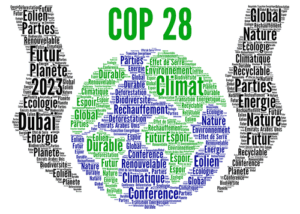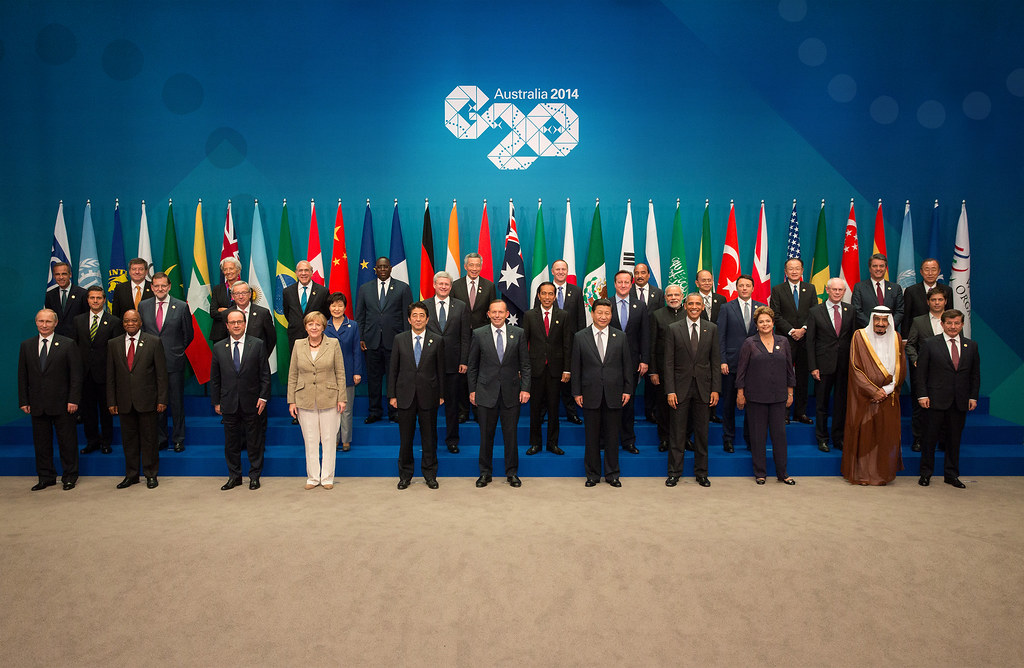The Conference of the Parties (COP) is an essential global gathering that plays a pivotal role in addressing the escalating issue of climate change. Assembled under the United Nations Framework Convention on Climate Change (UNFCCC), COP meetings are instrumental in facilitating international cooperation, fostering agreements, and implementing strategies to mitigate the adverse impacts of climate change. This essay aims to delve into the significance, evolution, key milestones, and challenges associated with COP in approximately 1000 words.

Keypoints of this post
ToggleThe Significance of COP:
COP meetings serve as platforms for nations worldwide to collaborate, negotiate, and establish collective commitments aimed at combating climate change. These conferences bring together policymakers, scientists, activists, and various stakeholders to deliberate on climate-related issues, share knowledge, and devise strategies to reduce greenhouse gas emissions. The agreements and initiatives formulated during these gatherings hold immense significance in shaping global responses to climate change and charting the course for sustainable development.
Also Read:-what is G20
Evolution of COP:
The journey of COP began with the inception of the UNFCCC in 1992, which aimed to address the mounting concerns about human-induced climate change. The first COP, known as COP1, took place in Berlin in 1995, marking the commencement of these crucial global gatherings. Since then, COP meetings have been held annually, each hosting deliberations on critical climate-related matters.
Key Milestones:
Several key milestones have been achieved through COP meetings, signifying the progress made in combating climate change. The Kyoto Protocol, established during COP3 in 1997, was a significant breakthrough, setting binding emissions reduction targets for developed countries. However, challenges arose concerning the participation of major emitters like the United States, dampening the Protocol’s effectiveness.
COP21 in Paris 2015 stands out as a landmark event where the Paris Agreement was adopted, representing a collective effort by 195 nations to combat climate change. This agreement aimed to limit global warming to well below 2 degrees Celsius above pre-industrial levels, with aspirations to limit it to 1.5 degrees Celsius. Countries pledged nationally determined contributions (NDCs) outlining their individual efforts to reduce emissions and adapt to climate impacts. The Paris Agreement’s significance lay in its inclusivity, as it incorporated commitments from both developed and developing nations, acknowledging their respective responsibilities in combating climate change.
Challenges Associated with COP:
While COP meetings have achieved significant milestones, challenges persist in effectively implementing the agreed-upon measures. One of the primary challenges is ensuring compliance and accountability among nations regarding their pledged commitments. Many countries struggle to meet their NDCs due to financial constraints, lack of technological resources, or domestic political obstacles.
Another challenge is the divergence in perspectives and interests among participating nations. Disagreements often arise regarding the distribution of responsibilities, financial aid for developing countries, and the extent of commitments each nation should undertake. Bridging these gaps and fostering consensus remains a persistent challenge during COP negotiations.
Moreover, the urgency of addressing climate change requires accelerated action and enhanced ambition from all nations. The current pace of emissions reduction falls short of what is necessary to achieve the goals set forth in the Paris Agreement, amplifying the need for more ambitious and immediate measures.
The Continued Role and Future of COP:
The role of COP in tackling climate change remains crucial in the foreseeable future. As the impacts of climate change become more pronounced, the urgency to implement effective strategies and policies intensifies. COP meetings serve as platforms to reassess and reinforce commitments, innovate new approaches, and mobilize resources necessary for transitioning to a low-carbon economy.
One of the key focus areas for future COP meetings is enhancing adaptation and resilience measures, especially for vulnerable communities and ecosystems. This involves not only reducing greenhouse gas emissions but also addressing the inevitable impacts of climate change that communities are already experiencing, such as rising sea levels, extreme weather events, and disruptions to agriculture and water resources.
Furthermore, achieving the goals outlined in the Paris Agreement requires increased collaboration between governments, the private sector, civil society, and academia. Technology and innovation play pivotal roles in advancing renewable energy, improving energy efficiency, and developing sustainable practices across various sectors. COP meetings should foster partnerships and encourage the exchange of best practices and technologies to accelerate global efforts.
challenges of cop
Finance is a crucial aspect that requires attention during COP negotiations. Supporting developing nations financially to adapt to climate change and transition to clean energy is paramount. Fulfilling commitments related to climate finance, including the mobilization of $100 billion annually by developed countries to assist developing nations, remains a priority to ensure equitable progress in addressing climate challenges.
Moreover, engaging and empowering youth and local communities is imperative. Their involvement in climate action and decision-making processes can bring fresh perspectives, innovative solutions, and grassroots support, thereby strengthening the implementation of climate initiatives.
As the world evolves, COP meetings must also adapt and evolve to effectively address emerging challenges and opportunities. Flexibility in approaches, continuous review mechanisms, and periodic updates to commitments and strategies are essential to ensure that COP remains responsive to the evolving climate landscape.
Conclusion:
In conclusion, COP meetings stand as critical forums for addressing the existential threat of climate change. These gatherings have witnessed significant achievements, such as the Paris Agreement, signaling global consensus and commitment to combatting climate change. However, challenges persist, requiring intensified efforts to ensure compliance, enhance ambition, and foster greater international cooperation. The continued success of COP meetings is pivotal in steering the world toward a sustainable future, safeguarding the planet for present and future generations.
COP meetings are indispensable global platforms that hold the potential to drive transformative change in combating climate change. The achievements, challenges, and the evolving role of COP underscore the necessity for sustained commitment, collaboration, and innovation in addressing one of the most pressing issues of our time. The success of COP meetings hinges on the collective determination and concerted efforts of nations worldwide to forge a sustainable and resilient future for the planet and its inhabitants.







